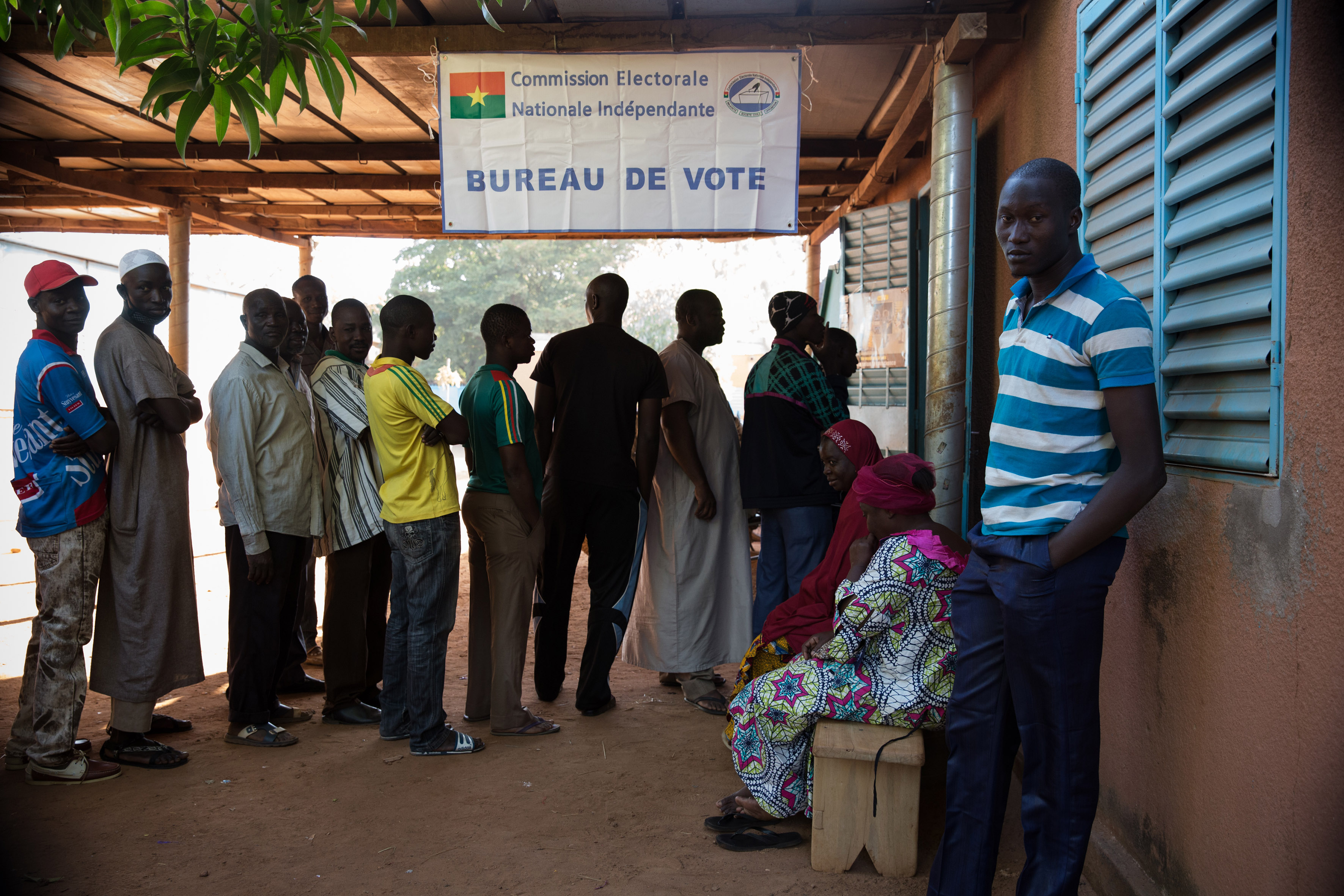Burkina Faso and the Sahel: Turning Points in Elections and Security
Large Photo

On February 2016, NDI hosted the panel event, Burkina Faso and the Sahel: Turning Points in Elections and Security. A panel of five discussed their experiences and observations leading up to and during the Burkina Faso election on November 20th, 2015.
The speakers included:
- Sophia Moestrup - NDI’s Deputy Director for Central and West Africa
- Dr. Benjamin Nickels - Associate Professor and Academic Chair, Transnational Threats and Counterterrorism
- Aminata Kassé - NDI’s Senior Resident Director in Burkina Faso
- Anis Samaali - PVT Project Coordinator chez Mourakiboun
- Kevin Adomayakpor - Resident Program Manager In Central and West Africa
This was a historic time for Burkina Faso as the freest, fairest and most competitive presidential and legislative elections in the country’s history took place. Of the 5.5 million registered voters that were ready to participate, over 60% of them voted in the election of President Roch Marc Christian Kabore of the Mouvement du peuple pour le progrés (MPP). Although 25,000 soldiers were deployed in a moment of political transition, the elections were successful and perceived as credible and legitimate. This is notable as there was an attempted coup d’etat less than three months before the elections were held. Aminata Kassé noted that, “this was the first time the election outcome was not known beforehand.” Participation from a multiple actors was much improved and everything about the voting process and atmosphere was more open than ever before. TV debates were also a first for Burkina Faso in 2015, and the quality of female and youth participation increased significantly.
NDI played a supporting role in improving election monitoring by sharing best practices and providing training to local partner organizations RESOCIDE and CODEL. NDI also provided training to political parties by empowering them with both the technical and material resources needed to monitor polling station operations and voting and ballot counting procedures. These parties also received training on how to use information communication technology platforms to collect, record and analyze observer data. Overall, the combination of NDI’s innovative methodological and technology focused approach empowered local organizations to train over 44,416 observers and pollwatchers who participated during on the day of the election. This effort was a success as was reflected in Burkina Faso’s having held their freest and fairest elections to date.
Lessons learned:
Although the elections were successful, there were things that could have been done better. Many people complained of not understanding ‘how to vote’. Much attention was focused on campaigning for peace, but not enough messaging was focused on teaching people how to vote. This lack of voting education resulted in over 200,000 invalid ballots.
As observed in Burkina Faso, the credibility and legitimacy of the electoral processes is an important indicator of democratic values and opportunities provided to greater society. The stronger and more resilient local civil society organizations can become through continued adoption and implementation of best practices and useful technologies the greater impact they will have in building enduring democratic institutions and principles nationwide.
Topics
